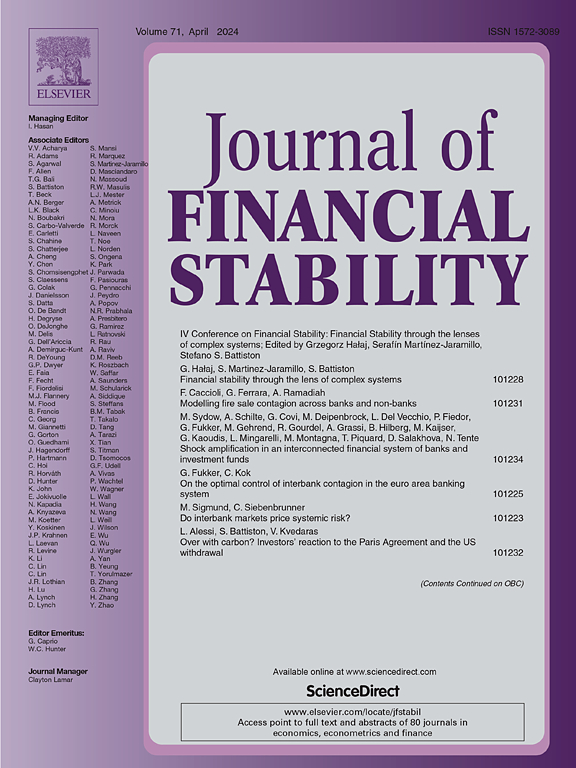首席财务官社交网络与公司税收
IF 6.1
2区 经济学
Q1 BUSINESS, FINANCE
引用次数: 0
摘要
尽管社会网络在影响企业行为方面具有重要意义,但对其对企业税收行为影响的研究却有限。本文基于美国公司cfo的就业经历、教育背景和非专业活动,构建了他们的社交网络。我们发现,与社会联系较少的首席财务官相比,社会联系较多的首席财务官的企业有效税率(ETR)较低。当公司治理较弱、管理者激励较高时,这种效应更为明显。此外,企业的ETR随着CFO中心性的增加而降低。我们在董事会的连通性方面没有观察到类似的结果。此外,当公司的首席财务官有社会联系时,公司对也表现出类似的ETRs,这表明首席财务官之间通过他们的社会网络交换与税收相关的信息。我们还发现,拥有中心cfo的公司的过往ETRs可以预测拥有非中心cfo的公司的ETRs。这表明社会联系较少的首席财务官倾向于遵循其社会联系较多的同行的税收筹划策略。总体而言,我们的研究结果表明,与社会联系较少的首席财务官相比,社会联系较多的首席财务官拥有更多有关税收筹划的相关信息和资源,从而采取更积极的税收策略。本文章由计算机程序翻译,如有差异,请以英文原文为准。
CFO social networks and corporation taxation
Despite the significance of social networks in influencing firm behavior, research on their impact on corporate tax behavior is limited. In this paper, we construct social networks of CFOs from U.S. companies based on their employment history, education, and non-professional activities. We find that firms with more socially connected CFOs have lower effective tax rates (ETR) compared to firms with less socially connected CFOs. This effect is more pronounced when corporate governance is weaker and managers have higher incentives. Furthermore, a firm's ETR decreases as CFO centrality increases. We do not observe similar results regarding the connectedness of boards of directors. Additionally, firm pairs exhibit similar ETRs when their CFOs are socially connected, suggesting an exchange of tax-related information among CFOs through their social networks. We also find that the past ETRs of firms with central CFOs predict the ETRs of firms with non-central CFOs. This indicates that less socially connected CFOs tend to follow the tax planning strategies of their more socially connected counterparts. Overall, our findings indicate that more socially connected CFOs possess more relevant information and resources regarding tax planning, leading to the adoption of more aggressive tax strategies compared to their less socially connected counterparts.
求助全文
通过发布文献求助,成功后即可免费获取论文全文。
去求助
来源期刊

Journal of Financial Stability
Multiple-
CiteScore
7.70
自引率
9.30%
发文量
78
审稿时长
34 days
期刊介绍:
The Journal of Financial Stability provides an international forum for rigorous theoretical and empirical macro and micro economic and financial analysis of the causes, management, resolution and preventions of financial crises, including banking, securities market, payments and currency crises. The primary focus is on applied research that would be useful in affecting public policy with respect to financial stability. Thus, the Journal seeks to promote interaction among researchers, policy-makers and practitioners to identify potential risks to financial stability and develop means for preventing, mitigating or managing these risks both within and across countries.
 求助内容:
求助内容: 应助结果提醒方式:
应助结果提醒方式:


